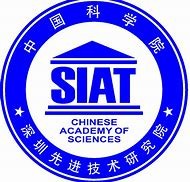This August in Shenzhen, China, 19 neuroscience students and postdocs from different areas in China attended the 2022 IBRO-APRC Associate School on Advanced Neuroscience Technology. This school was supported by IBRO-APRC Committee, organized by the Brain Disease and Brain Cognition Institute, Faculty of Life and Health Sciences, Shenzhen Institute of Advanced Technology. These 19 students were selected from more than one hundred applications across the world. Due to the Covid-19 pandemic and the limited school size, many excellent students were not able to participate in this five-day program focus on the state-of-art neuroscience technology. For each of the following technique area, there were 2-4 lectures and a hand-on technology show session: behavioral neural science and circuitry, electrophysiology, imaging, and neural computation. These lectures provide the basic knowledge of these technologies and application in neuroscience research. All lecturers were selected based on their expertise in the neuroscience research field.
During the opening of the School, the Chair of IBRO-APRC, Prof. Pike See Cheah from Universiti Putra Malaysia gave an opening speech. She introduced the roles of IBRO-APRC played in neuroscience research in the Asia/Pacific regions and encourage the students to pay more attention to the organization and various funding opportunities for young neuroscience students.

In the following session, Prof. Zhiqiang Meng, the funding recipient and school organizer, introduced the school program, the host Institutions and discussed research integrity and ethics. Prof. Yu-Tian Wang (Dean) induced the Faculty of Life and Health Sciences. Prof. Liping Wang (Director) introduced the brain Disease and Brain Cognition Institute and had a lunch chat with the students.


In the session of behavioral neural science and circuitry, Profs Hiromu Tanimoto (Tohoku University), Fang Guo (Zhejiang University), Yingjie Zhu, Zhonghua Lu and Lei Li (all from Shenzhen Institute of Advanced Technology) gave lectures on reward learning, circadian rhythms, drug addiction, gene editing behavioral models and stress related diseases respectively.



In the session of electrophysiology, Profs Jianyuan Sun, Ji Dai and Xiaojian Li (all from Shenzhen Institute of Advanced Technology) gave lectures and led discussion on the topics of patch clamp electrophysiology, in vivo. multichannel electrophysiology in awake animals and EcoG based wide band brain-computer face.


In the session of brain imaging, students learned in optical imaging, MRI imaging in humans and nonhuman primates, electron microscopy combined with electrophysiology from Profs Zhen Yuan (University of Macau), Ning Liu (Institute of Biophysics, CAS), Lijuan Zhang and Shuwen Chang (Shenzhen Institute of Advanced Technology).


In the session of neural computation, Prof. Quanying Liu (Southern University of Science and Technology of China) and Dr. Chuanliang Han (Shenzhen Institute of Advanced Technology) Introduced the basic concepts and common computational models in neuroscience research.

Prof. Keqiang Ye from the Faculty of Life and Health Sciences, Shenzhen Institute of Advanced Technology gave a special lecture titled “Natural philosophy in biomedical research”. As an Endowed Professor and Department Chair, Prof. Ye gave many important suggestions to the young neuroscientists. With great enthusiasm, the discussion with students lasted about one hour after the lecture.

In the hands-on session, skilled technicians introduced the state-of-art technologies in circuitry research, electrophysiology, miniatured two-photon calcium imaging and quantum computing research.


On the last day of the school, all students presented four recently published papers as four pre-divided groups. Profs Yu-Tian Wang, Tao Zhou, Chang Liu, Zuxin Chen and Zhiqiang Meng served as referees and scored their presentations. The first two groups were awarded with the Best Presentation Award.


The local organizing committee members: Zhiqiang Meng, Yihan Wang, Lujia Sun, Jingyi Hu, Zijian Qiu and Kang Du.
